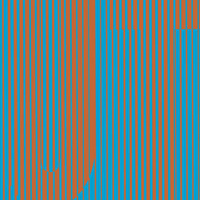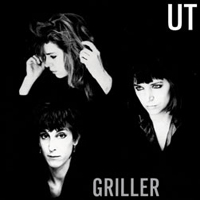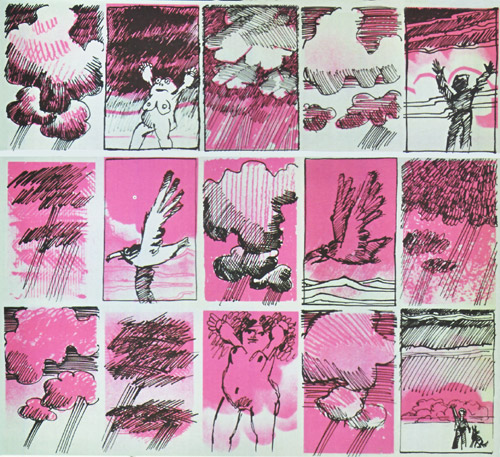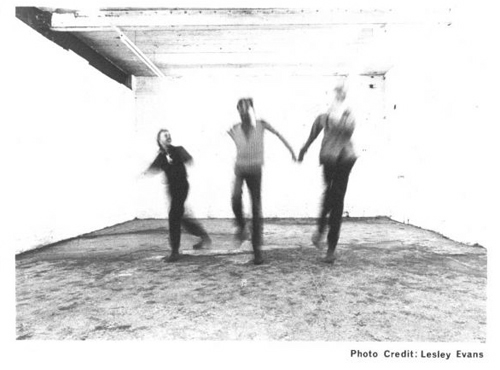WARPED REALITY has a contest! A first for us. And not only that, but it’s for one of our favorite bands, Ut. In honor of Mute’s August 14 re-release of the classic Ut albums In Gut’s House & Griller, we will have two sets of each to give away!
From Mute’s press release:
Ut: Two Classic Albums Reissued on CD
The Critically Acclaimed In Gut’s House and the Steve Albini Engineered Griller
Blast First / Mute reissue two classic UT albums —In Gut’s House (1988) and Griller (1989)— on 14th August 2006.
Sprung from the downtown No Wave scene, Ut (Nina Canal, Jacqui Ham and Sally Young) originated in New York City in December 1978. The inheritors of the fertile collision between rock, free jazz and the avant garde that first manifest itself in the Velvet Underground, Ut soon became a serious force within the New York music scene.
The band were joined briefly by film-maker Karen Achenbach in 1979 before resuming as a three-piece and migrating to London in 1981. Ut toured the UK with bands such as The Fall, The Birthday Party, The Raincoats and Pigbag. Originally releasing albums on their own label, Out Records, the band became a favourite of John Peel’s and recorded a Session for his show in 1984 before joining forces with Blast First in 1987.
The critically acclaimed In Gut’s House was originally released in 1988 and made NME’s Top 50 that year. As The Washington Post exclaimed, “With In Gut’s House, Ut has scraped and droned one of the finest underground rock albums of the year… The tightly interwoven, firmly focused sound… is rich, spooky, urgent and quite unexpectedly beautiful.”
In 1989 the band recorded and released the album Griller. Engineered by label mate Steve Albini, who shared Ut’s raw aesthetic. Griller captured the gripping intensity and sheer power of the Ut experience.
Unfortunately, Griller was to be Ut’s final release and in March 1990 Ut played their last concert in Paris.
A seminal influence on later bands such as Sonic Youth, and spiritual companions of The Fall, the miracle is not simply that Ut survived for 11 years, but that every Ut performance blasted away everything inessential and reached for the primal nerve.
Ut never softened or diluted its force, its restless confrontation and its pull on the secret heart of rock and roll.
“It isn’t rock anymore. But what is? There’s no one like them” –NME
TWO PRIZES, TWO WAYS TO WIN.
1) Which Ut song had its debut on the Thurston Moore-curated cassette accompaniment to
the Noise Fest festival at White Columns in 1981?
OR:
2) Give me your most creative definition of the word “Ut.”
Go Dada, go Wikipedia, go Haiku. Just have fun with it.
For reference, my extensive recent interview with the band: Part One; Part Two; and Part Three.
You can post your answers here in the comments or e-mail them to
andrea (at) warpedrealitymagazine.com. Make sure you leave your e-mail address
or other contact information.
Two winners will be drawn on AUGUST 1, 2006.
(More information here. You can also pre-order the albums through Mute or Amazon.co.uk.)
![]() Ut, “This Bliss [live]” | from Early Live Life; recorded at Club 57, 1981 | THANKS TO HK FOR THE TWEAK ON THIS ONE.
Ut, “This Bliss [live]” | from Early Live Life; recorded at Club 57, 1981 | THANKS TO HK FOR THE TWEAK ON THIS ONE.

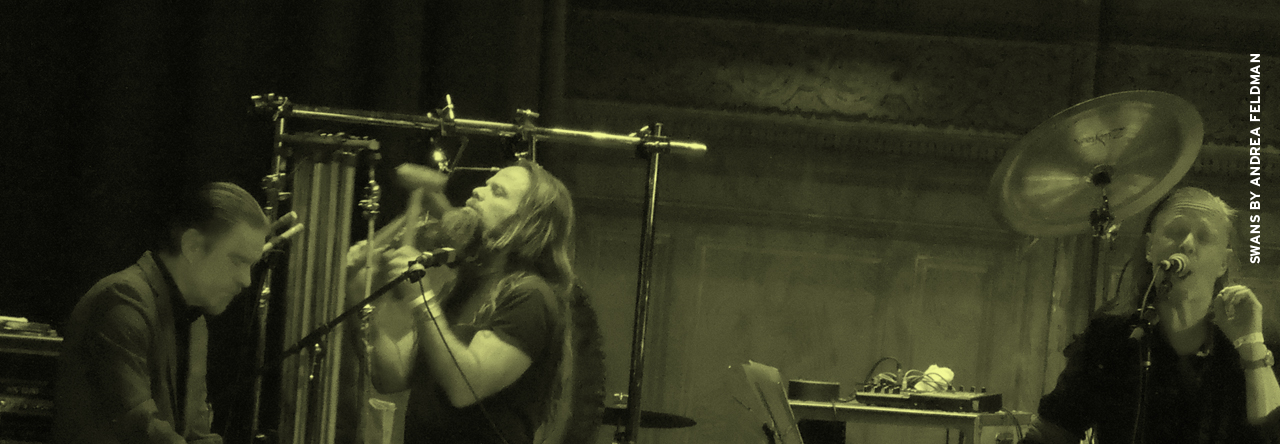
![Contest-[small]](http://warpedrealitymagazine.com/wp-content/uploads/2015/09/contest-small.gif)
